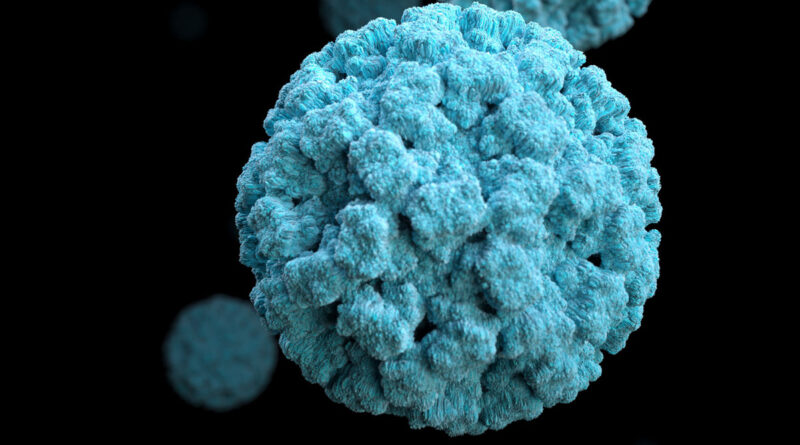Symptoms of Norovirus in Ohio
During the winter months, you may be at risk of getting sick with a norovirus. The disease can cause diarrhea, vomiting and even headaches. Here are some of the symptoms you can expect, along with what you can do to prevent this type of illness.
Symptoms
Symptoms of norovirus in Ohio include fever, nausea, vomiting, diarrhea and stomach pain. Most people recover after one to three days, but a few may require medical attention.
Norovirus can be passed from person to person, by eating contaminated food or through direct contact with the infected person. In the United States, it is the most common cause of acute gastroenteritis. The Center for Disease Control (CDC) reports that it causes between 19 and 21 million cases of acute gastroenteritis annually.
Most norovirus infections occur in closed, crowded areas. However, people can get the infection from other causes. Norovirus can be transmitted through contaminated water, food, and utensils.
The most important way to avoid norovirus is to ensure good hygiene. The CDC recommends washing hands frequently, especially before and after using the toilet, changing diapers, and before giving medicine. Alcohol-based hand sanitizers are not as effective as soap and water.
Norovirus is highly contagious, and it is especially easy to spread when you are sick. It is important to avoid going to work or school while you are ill. This will keep you from spreading the virus to your coworkers. If you are working, don’t prepare foods until at least 48 hours after you are feeling better.
You should also avoid eating food prepared by others. Norovirus can be found in contaminated food and vomit. Norovirus is also found in the stools of infected people. You should also dispose of your vomit and stool carefully.
If you suspect you have norovirus, you should see your doctor immediately. He or she may request a stool sample to rule out other causes. If the results are not clear, additional tests may be needed to confirm the diagnosis.
You should also drink a lot of fluids to prevent dehydration. If you are elderly, or have a weak immune system, you might be at risk for developing severe dehydration. A doctor can prescribe intravenous fluids to replace lost fluids.
Norovirus can be very contagious, so you should wear disposable gloves and take precautions when preparing food. You should also disinfect commonly used surfaces. You should wash fruits and vegetables thoroughly, and you should cook any shellfish before you eat them.
Diarrhea, vomiting, headaches and chills
During the cold winter months, norovirus outbreaks are common. The disease causes diarrhea and vomiting, which can lead to dehydration. These symptoms may last a couple of days, but most people are able to get rid of them on their own. However, people who are older or have suppressed immune systems may suffer complications.
During an outbreak, contaminated food or water can be a major source of infection. Some outbreaks have been caused by eating undercooked oysters that were harvested from contaminated waters. Taking a stool sample can help to determine the cause of diarrhea. It also can rule out parasites and other bacteria.
The virus spreads by direct contact with infected individuals or by touching contaminated surfaces. The virus also can be passed by drinking or eating contaminated food or drinks. It is important to wash hands thoroughly after using the bathroom to avoid catching the virus.
In most cases, symptoms of norovirus infection resolve without any adverse effects. If you have had diarrhea or vomiting, you should wait at least 48 hours after your symptoms begin to eat or drink. It is not advisable to return to work until you have been sick for three days. You may also need to see a doctor if your symptoms are severe.
Although norovirus is not as common as other viruses, such as the flu, it is still contagious. It is most common during the winter months. The symptoms of a norovirus infection include fever, muscle aches, chills, watery diarrhea, and abdominal cramping. It usually clears up on its own, but it is important to maintain good hydration. Those with severe dehydration can experience electrolyte imbalances and could even go into coma.
Norovirus is a highly contagious virus that causes frequent diarrhea. It is especially common in young children. It is also more likely to affect the elderly. You can protect yourself from norovirus by washing your hands frequently, avoiding contact with infected persons, and by cooking food carefully.
Some foods that can be contaminated with norovirus include raw fruits and vegetables, fish, oysters, and other shellfish. In addition to handwashing, cleaning with bleach solution can also be used to disinfect surfaces.
Treatment
Typically, the symptoms of norovirus include diarrhea, vomiting, abdominal pain and nausea. In some cases, it may also include a headache and muscle aches.
People who have norovirus will usually recover within a few days. However, the virus can cause dehydration in some people. This is especially true for children and the elderly. The disease is contagious, so you might be able to pass it on to other people through your hands.
Noroviruses spread through contact with infected feces or food. It can also be transmitted through objects that the infected person has touched, such as a contaminated surface.
It is important to wash your hands after using the bathroom. You should also make sure that you don’t contaminate any food or drink that you’ve come into contact with. This can help prevent the spread of the disease.
You should also avoid dairy products and fatty foods, such as cheese and meat. You should also be sure to cook shellfish and vegetables thoroughly before eating them. This can help prevent the spread of the virus.
You can also use Pepto-Bismol or other anti-nausea medications to help with the symptoms of norovirus. However, if you’re severely dehydrated, you may need intravenous fluids.
The disease can also affect the immune system. This is why it’s so important to make sure you stay hydrated. If you’re ill, you should have a stool test to ensure that you don’t have another infection. If you do, your doctor may prescribe oral rehydration solutions.
Noroviruses are very contagious, so you should make sure that you’re taking precautions to avoid getting infected. If you have norovirus, you should avoid all contact with others until you’re fully recovered. You can also help prevent the spread of the virus by washing your hands frequently.
You should also eat easy-to-digest foods when you’re ill. Try to avoid alcohol. It can dehydrate you further. It’s best to drink water and other drinks without caffeine.
In addition to the above tips, you should avoid sharing food and beverages with people who are ill. It’s also a good idea to eat only small amounts of food often.
Prevention
Keeping your hands clean is the most important method of norovirus prevention. You should wash your hands with soap and water after coming in contact with contaminated objects or materials. You should also disinfect surfaces that may be contaminated.
Norovirus is a common gastrointestinal disease that causes vomiting, diarrhea and stomach cramps. It is usually mild, but can lead to dehydration. Some people are more susceptible to the illness, including children, older adults, pregnant women and people with weakened immune systems.
A person with norovirus infection can spread the virus to others by coughing, sneezing or touching their mouth or nose. They can also spread it by eating food that has been infected. It is also possible to contract norovirus by consuming contaminated water, juice or other drinks.
There are many different types of noroviruses. In Ohio, the Norwalk virus is named after the city where it was first identified in 1972. It is thought to be one of the most common causes of acute gastroenteritis in the U.S., accounting for up to twenty million illnesses each year.
Symptoms of norovirus infection include fever, chills, nausea, vomiting and abdominal pain. They usually begin within 24 to 48 hours after exposure and last for a day or two.
Noroviruses are not curable by antibiotics. The CDC estimates that approximately 70,000 people are hospitalized every year due to norovirus. However, most of the cases are unreported.
Norovirus outbreaks typically occur during cold weather months. Although norovirus is not considered a serious condition, it is still a risk for health care workers and others who care for sick people. The disease can be very contagious, and people can pass the virus to family members.
When a person gets sick, they should avoid caring for others, prepare food for others, and share utensils. They should wear rubber gloves when handling soiled laundry. They should also be careful not to touch their face until after washing their hands. They should also use disposable gloves to dispose of their stool and vomit. They should also place soiled items in plastic bags and dispose of them carefully.




